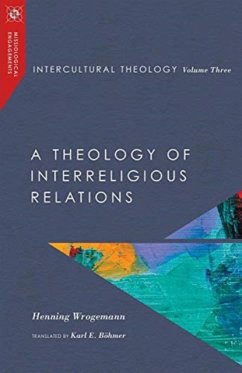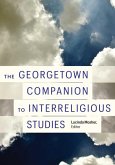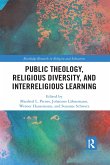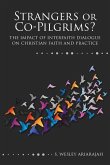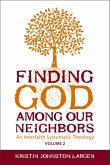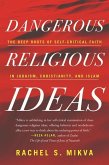Christianity is not only a global but also an intercultural phenomenon. In this third volume of his three-volume Intercultural Theology, Henning Wrogemann proposes that we need to go beyond currently trending theologies of mission to formulate both a theory of interreligious relations and a related but methodologically independent theology of interreligious relations.
Hinweis: Dieser Artikel kann nur an eine deutsche Lieferadresse ausgeliefert werden.
Hinweis: Dieser Artikel kann nur an eine deutsche Lieferadresse ausgeliefert werden.

